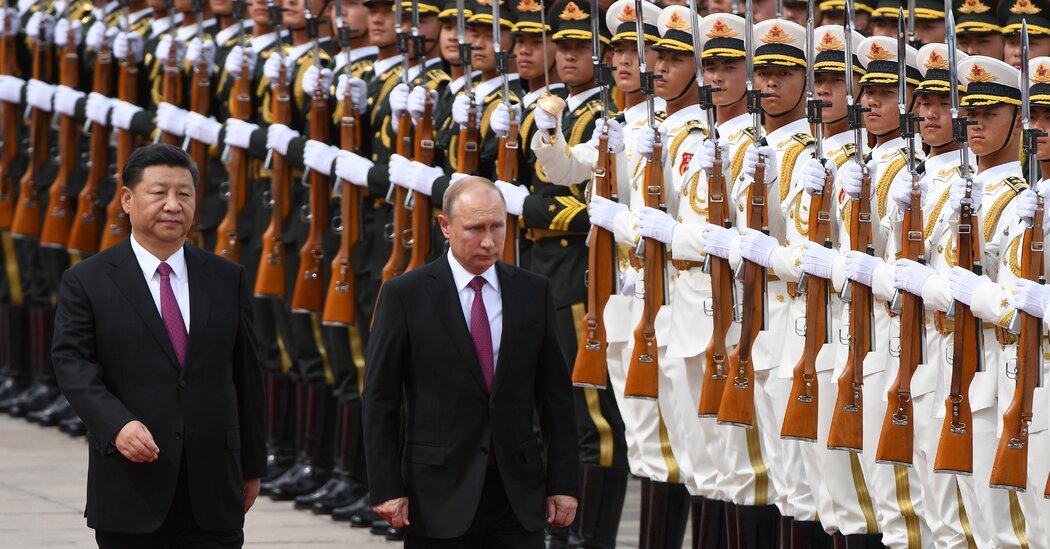Chinese chipmakers and technology companies are heading to Malaysia in droves, its economy minister Rafizi Ramli said, as Beijing prepares to face more tariffs when Donald Trump returns as US president this month.
The moves by Chinese companies, which are expected to result in billions of dollars of investment in Malaysia in the coming years, would rival the US companies that have dominated the country’s market, he said.
“Chinese [companies] are very keen to go outside and expand beyond their domestic market,” Rafizi told the Financial Times in an interview. “Those companies are now looking at relocating or expanding into Malaysia.”
Trump has threatened to impose 60 per cent tariffs on Chinese imports when he re-enters the White House on January 20, rattling investors and putting companies on alert to restructure their supply chains.
Malaysia has been a big beneficiary over the past decade of such “China-plus-one” strategies, where multinational companies complement their Chinese operations with investments in regional countries to diversify risk and lower costs.
It has also positioned itself as a crucial player in global supply chains for high-tech industries such as artificial intelligence, with long-standing semiconductor manufacturing operations in Penang in the north and a burgeoning hub for data centres in the southern state of Johor.
US companies have dominated these sectors in Malaysia, but Rafizi said he expected a wave of Chinese investment on the back of initiatives his government was putting in place to develop the industries further.
Joe Biden’s administration has restricted sales of advanced chips by US companies to China, posing a potential threat to their investments in Malaysia, where many of the products are manufactured, and opening the door for Chinese competitors.
Rafizi said he made a 10-day trip in June to China, where he met 100 AI, tech and biomedical companies to assess their appetite for investing in Malaysia. He added that these efforts had resulted in two investment delegations from China in the past few months.
“Chinese investments usually come with their own ecosystem,” he said. “We will be seeing more and more, especially if we can secure the first two or three anchor investors from China.”
He added that many companies were also seeking to increase exposure to the fast-growing south-east Asian market as China’s economic momentum slows and trade with the US faces additional barriers.
This week, Malaysia signed an agreement with Singapore to create a vast special economic zone between the two countries. Malaysia hopes the initiative will add $26bn a year to its economy by 2030, bringing in 20,000 skilled jobs and 50 new projects.
Between 2019 and 2023, Malaysia attracted $21bn of investment into its semiconductor industry and $10bn into data centres — the storage facilities that enable fast-growing technologies such as AI, cloud computing and cryptocurrency mining. In the past year alone, US tech companies Amazon, Nvidia, Google and Microsoft committed nearly $16bn, mostly for data centres in Johor.
TikTok owner ByteDance is the largest Chinese group to invest in Johor, with a $2bn commitment last year.
Rafizi said that while historically, Malaysia had been happy to accept any foreign investment, it was becoming more selective as it sought to contribute more value to the products and services it produced.
He added that while increasing US-China tensions would harm global trade, it could prompt Chinese companies to give Malaysia a bigger role in chip design, rather than just manufacturing, which would generate more income as the country climbed the value chain.
“The unintended consequence of some tariff measures targeted at Chinese companies basically helps countries like Malaysia to weed out the more genuine and long-term investments from China compared to the ones that just look to use Malaysia as a manufacturing outpost,” he said.

























/cdn.vox-cdn.com/uploads/chorus_asset/file/25822586/STK169_ZUCKERBERG_MAGA_STKS491_CVIRGINIA_A.jpg)

